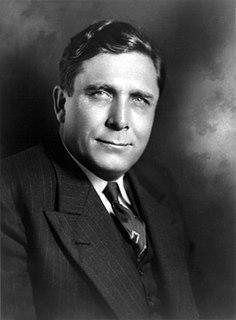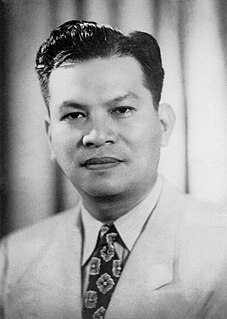A Quote by Wendell Willkie
But if we had to trade with a Europe dominated by the present German trade policies, we might have to change our methods to some totalitarian form. This is a prospect that any lover of democracy must view with consternation.
Related Quotes
For sure, certain policies and positions that the party has had for 30 years are going to have to be rethought because [Donald] Trump does have a bit of a mandate when it comes to sort of thinking through trade and rebalancing our trade and how Republicans are going to sort of have a posture towards trade.
Substantial progress was made in spreading our foreign trade to other areas. Our total trade with Northwest Europe in the first 8 months of last year was 42.3 per cent above the corresponding period the year previous, and our total trade with Asia was up 13.5 per cent. For the first time since 1919, the United States in the first 8 months of 1956 accounted for less than 60 percent of our total trade.
It's no good starting out by thinking one is a heaven-born genius- some people are, but very few. No, one is a tradesman - a tradesman in a good honest trade. You must learn the technical skills, and then, within that trade, you can apply your own creative ideas, but you must submit them to the discipline of form.
Incidentally, I don't think there is a non-adjectival 'globalisation'. What we have now is a particular form: dominated by finance and multinational corporations and by a rhetoric (though not a reality) of 'free trade' and market forces. So I'm not a localist. I'm an internationalist, but one who believes (a) that such a thing is really only possible through a prior grounding and (b) that the terms of our present globalisation have to be challenged politically.



































